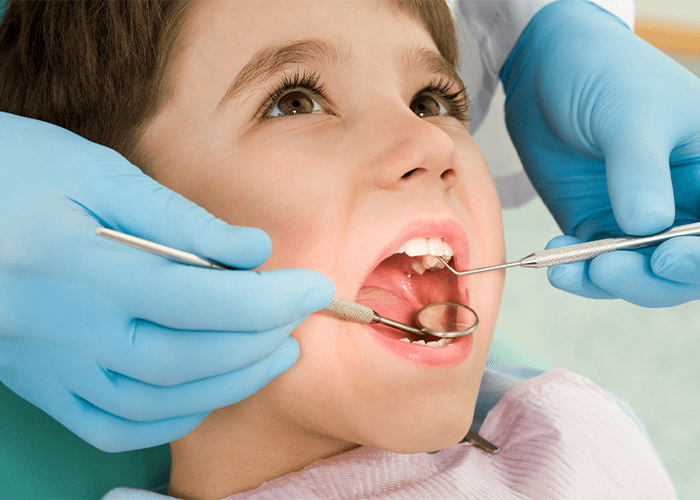Selecting the appropriate children’s dentist is a crucial decision for any parent, directly impacting their child’s oral health and overall well-being. Ensuring that your child receives high-quality dental care involves more than just picking a dentist from a list; it requires understanding what makes a dental practice suitable for young patients. This guide outlines key considerations for choosing a children’s dentist and provides insights into how to make an informed decision.
Importance of a Specialized Children’s Dentist
Children’s dentists, or pediatric dentists, specialize in treating children from infancy through adolescence. Unlike general dentists, pediatric dentists undergo additional training focused on the unique dental needs of children. This specialization is crucial for several reasons:
- Developmental Knowledge: Pediatric dentists are adept at managing the dental development of children, from the eruption of baby teeth to the transition to adult teeth. Their expertise includes understanding common childhood dental issues, such as cavities and alignment problems.
- Behavioral Techniques: They are trained in techniques to help children feel comfortable and less anxious about dental visits. This includes using child-friendly language, creating a welcoming environment, and employing gentle approaches to treatment.
Factors to Consider When Choosing a Children’s Dentist
1. Qualifications and Experience
Verify the qualifications and experience of the children’s dentist. Pediatric dentists should be board-certified and have completed a residency program in pediatric dentistry. Their experience in handling various pediatric dental issues is crucial for providing appropriate care.
- Board Certification: Ensure that the dentist is certified by the American Board of Pediatric Dentistry or a similar recognized organization. This certification indicates that the dentist has met rigorous standards and demonstrates a commitment to ongoing education.
- Experience: An experienced pediatric dentist will have encountered a wide range of dental conditions and will be skilled in managing both common and complex issues in children.
2. Office Environment and Amenities
The dental office environment should be child-friendly and conducive to creating a positive experience for young patients. A well-designed pediatric dental office often includes:
- Child-Friendly Decor: Bright colors, fun themes, and interactive elements can help make the dental visit more enjoyable for children.
- Amenities: Look for amenities such as a play area, educational materials about dental health, and a welcoming staff that specializes in pediatric care.
3. Approach to Preventive Care
A good children’s dentist emphasizes the importance of preventive care. This includes:
- Education: The dentist should provide guidance on proper brushing and flossing techniques, dietary advice, and the importance of regular dental check-ups.
- Early Intervention: They should be proactive in identifying potential dental issues early and recommending appropriate preventive measures.
4. Communication and Rapport
Building a trusting relationship between the dentist, the child, and the parents is essential for effective dental care. Key aspects include:
- Communication: The dentist should communicate clearly with both parents and children. They should explain procedures in a way that is understandable and reassuring to children.
- Rapport with Children: Observe how the dentist interacts with your child. A good pediatric dentist will engage with children in a way that makes them feel comfortable and at ease.
5. Emergency Care and Availability
Consider the dentist’s policies regarding emergency care. Dental emergencies can occur outside of regular office hours, so it’s important to know:
- Emergency Protocols: Inquire about the office’s procedures for handling dental emergencies and whether they offer after-hours care or have an emergency contact number.
- Appointment Availability: Ensure that the dentist has flexible appointment scheduling to accommodate your family’s needs.
Evaluating and Making the Final Decision
Once you have gathered information about potential children’s dentists, consider visiting the offices to get a firsthand impression. During the visit, evaluate the following:
- Office Cleanliness: The office should be clean and well-organized, with appropriate infection control practices in place.
- Staff Interaction: Observe how the staff interacts with both children and parents. Friendly, professional, and knowledgeable staff contribute significantly to a positive experience.
- Treatment Philosophy: Discuss the dentist’s approach to treatment and preventive care to ensure it aligns with your family’s values and expectations.
Conclusion
Choosing the right children’s dentist involves careful consideration of their qualifications, experience, office environment, and approach to care. By focusing on these key factors and evaluating potential dentists thoroughly, you can ensure that your child receives the best possible dental care. A qualified and compassionate children’s dentist will not only address your child’s immediate dental needs but also foster a positive attitude towards oral health that can last a lifetime.

